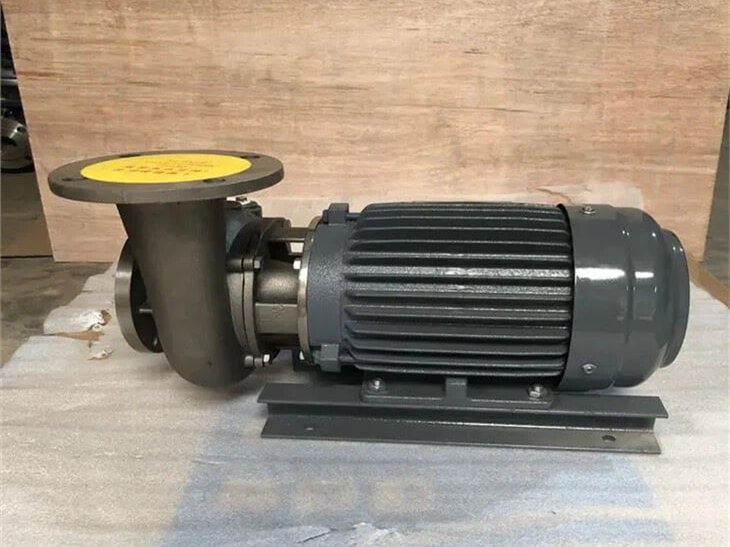In the realm of industrial equipment, few components carry as much weight as pumps. These devices serve as the heart of various processes, facilitating the movement of fluids and gases in a myriad of applications across industries such as oil and gas, chemical processing, water treatment, and aerospace, to name a few. Within this landscape, titanium pumps stand out as a marvel of modern engineering, offering unparalleled durability, corrosion resistance, and performance. In this exploration, we delve into the world of titanium pumps, uncovering their unique characteristics, applications, and the transformative impact they have on diverse sectors.
The Titanium Advantage
Titanium, known for its exceptional strength-to-weight ratio and corrosion resistance, has earned its place as a prized material in industrial applications. When applied to pump construction, titanium offers a host of advantages over traditional materials such as stainless steel, carbon steel, and even other non-ferrous metals like aluminum or copper alloys.
Corrosion Resistance
One of the most compelling features of titanium pumps is their resistance to corrosion. In harsh operating environments where corrosive substances abound, such as saltwater, acids, and chemical solvents, traditional pump materials often succumb to degradation over time. Titanium, however, demonstrates remarkable resilience, maintaining its structural integrity and performance even in highly corrosive conditions. This corrosion resistance extends the operational lifespan of titanium pumps, reducing maintenance costs and downtime.
Strength and Durability
Despite its relatively low density, titanium boasts exceptional strength, rivaling that of steel. This inherent strength allows titanium pumps to withstand high pressures and temperatures without succumbing to deformation or mechanical failure. Moreover, titanium’s fatigue resistance ensures prolonged operational reliability, making it an ideal choice for critical applications where downtime is not an option.
Lightweight Design
In addition to its strength and corrosion resistance, titanium’s lightweight nature offers further benefits in pump design and installation. Compared to traditional metallic counterparts, titanium pumps exhibit reduced weight, simplifying handling and transportation. This characteristic is particularly advantageous in applications where space constraints or mobility requirements dictate compact and portable solutions.
Applications Across Industries
The versatility and performance of titanium pumps find applications across a wide spectrum of industries, contributing to enhanced efficiency, reliability, and safety in diverse operational environments.
Oil and Gas
In the oil and gas sector, titanium pumps play a vital role in upstream, midstream, and downstream operations. From offshore drilling platforms to onshore refineries, these pumps handle corrosive fluids, abrasive slurries, and volatile hydrocarbons with ease. Whether pumping seawater for cooling systems or transferring corrosive chemicals for processing, titanium pumps offer the durability and reliability demanded by the rigors of the oil and gas industry.
Chemical Processing
Chemical processing plants rely heavily on corrosion-resistant equipment to handle aggressive substances safely and efficiently. Titanium pumps excel in this environment, where they come into contact with acids, alkalis, and other corrosive chemicals. From transporting caustic soda to pumping sulfuric acid, titanium pumps ensure optimal performance while minimizing the risk of contamination and environmental hazards.
Aerospace and Defense
In the aerospace and defense sectors, where lightweight yet robust components are paramount, titanium pumps find numerous applications. Whether it’s fuel transfer systems in aircraft or hydraulic fluid circulation in military vehicles, these pumps deliver the necessary performance under demanding conditions. Moreover, titanium’s resistance to corrosion and erosion makes it an ideal choice for aerospace applications where exposure to harsh environments is common.
Water Treatment
Water treatment facilities rely on pumps to manage the flow of water and various chemicals throughout the treatment process. Titanium pumps offer an ideal solution for such applications, providing corrosion resistance in both freshwater and seawater environments. Whether it’s desalination, wastewater treatment, or chemical dosing, titanium pumps ensure the efficient and reliable operation of water treatment systems.
Innovations Driving Titanium Pump Technology
As technology advances and engineering capabilities evolve, titanium pump manufacturers continue to push the boundaries of innovation, introducing new features and design enhancements to further improve performance and efficiency.
Advanced Materials and Manufacturing Techniques
Advancements in metallurgy and manufacturing processes have led to the development of high-performance titanium alloys tailored for specific applications. These alloys offer improved mechanical properties, corrosion resistance, and cost-effectiveness, expanding the potential applications of titanium pumps across industries.
Computational Fluid Dynamics (CFD) Simulations
The use of computational fluid dynamics (CFD) simulations allows engineers to optimize pump design for enhanced efficiency and performance. By analyzing fluid flow patterns and pressure distributions within the pump, designers can fine-tune impeller geometries, casing configurations, and inlet/outlet designs to minimize energy consumption and maximize throughput.
IoT and Condition Monitoring
Integration of Internet of Things (IoT) technology and condition monitoring systems enables real-time monitoring of pump performance and health. By collecting data on operating parameters, vibration levels, and temperature profiles, operators can identify potential issues before they escalate, thereby reducing the risk of unplanned downtime and costly repairs.
Additive Manufacturing (3D Printing)
The advent of additive manufacturing technologies, such as 3D printing, offers new possibilities for pump design and customization. Additive manufacturing allows for the creation of complex geometries and lightweight structures that were previously unattainable using traditional manufacturing methods. This flexibility enables pump manufacturers to optimize performance while reducing material waste and production lead times.
In conclusion, titanium pumps represent a pinnacle of engineering excellence, combining the exceptional properties of titanium with innovative design and manufacturing techniques to deliver unparalleled performance and reliability. From their corrosion resistance and durability to their lightweight design and versatility, titanium pumps continue to drive efficiency and productivity across a diverse range of industries. As technological advancements accelerate and industrial demands evolve, the future of titanium pump technology promises even greater innovation and impact, further cementing their status as indispensable components in the modern industrial landscape.
